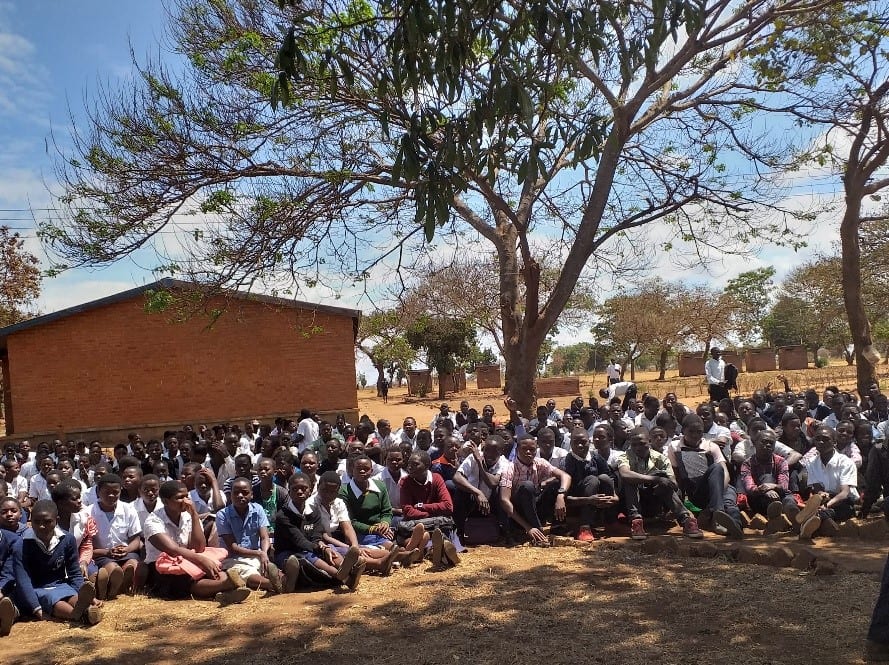Climate change is destroying their crops
The Gumbi Education Fund was set up when readers of the Guardian newspaper responded to an article about how the village of Gumbi in Malawi recovered from a famine in 2002. Since then, it has improved the lives of children through access to education – with great success. (See the Gumbi 2020 newsletter for more information.)

Now the villagers face another, growing menace: climate change which is destroying their crops and causing hunger and malnutrition.
In the 2020 Gumbi newsletter, John Vidal writes:
We asked Patrick [the health worker/administrator of the Fund’s work in the Gumbi villages – see below] to talk to farmers, teachers and others across the 12 villages he serves. This is his report: “In the past, the rains came regularly in early October but these days it is in December and they are heavier. We do not know what to expect. We are experiencing more heat in the summer months and it is also hotter in the winter. Strange winds damage peoples’ crops and homes and we are seeing new pests. Special worms which we have never seen before are destroying our crops and we do not know how to control them. The result is another hunger crisis and a lot of malnutrition in the villages. I believe 10% of the children are now malnourished. Harvests are badly affected. We need to adapt to climate change and would like to plant trees and learn new techniques to farm other crops but we need advice.” Patrick went on to say, what they need more than anything to counter climate change and poverty is education.
ACAN is supporting the Gumbi Education Fund with a project to educate some young people about how to grow food more sustainably. John Vidal has met an American couple just outside Lilongwe, the capital of Malawi, who have set up the most extraordinary permaculture holding, growing hundreds of different crops. Here’s a link to a piece John wrote about them two years ago: https://www.huffingtonpost.co.uk/entry/permaculture-food-sustainable-productive_n_5b8e3618e4b0162f47266755?ri18n=true. We hope that ACAN’s support will enable young people in the Gumbi villages to learn about permaculture as a way of mitigating some of the impact of climate change.
How the Gumbi Education Fund works
Each year, a budget for the year ahead is agreed, and a
village education committee identifies children eligible for scholarships to
pay for their secondary education. Money is sent three times a year to each
village. All money must be spent on education, but in times of great hunger or
need, the fund will pay for school feeding programmes to encourage children to
keep going to school. The fund has no administrative costs beyond paying a
local government health worker [Patrick] in Malawi to liaise between village
education committees and schools.
The Fund has rebuilt primary schools and teachers’ houses, provided libraries and is now supporting a few students through university.
The Fund has provided solar lights for the schools and several hundred children, through Solar Aid https://solar-aid.org/ – which is supported by ACAN group Energy Alton, www.energyalton.org.uk
The importance of educating girls
“Project Drawdown https://drawdown.org/solutions lists 80 “solutions” to climate change ranked in order of effectiveness worldwide. Educating girls is number 6 on the list (see list of the first 10 solutions below). Nearly half of the children put through secondary school by the Fund in 2019 were girls, compared with 10-20% when they started.
- Managing refrigerants
- Onshore wind turbines
- Food waste
- Plant-rich diet
- Tropical forests
- Educating girls
- Family planning
- Solar farms
- Silvopasture
- Rooftop solar
 Alton Climate Action Network
Alton Climate Action Network